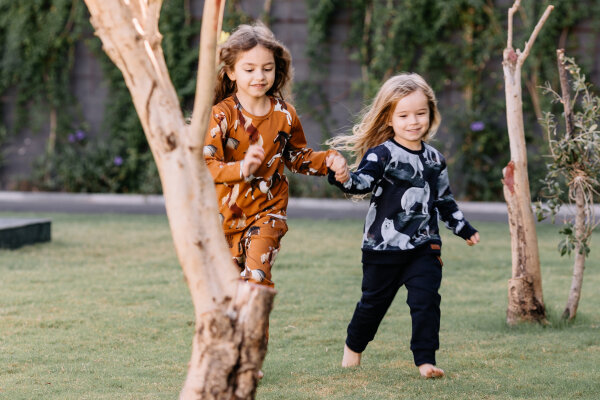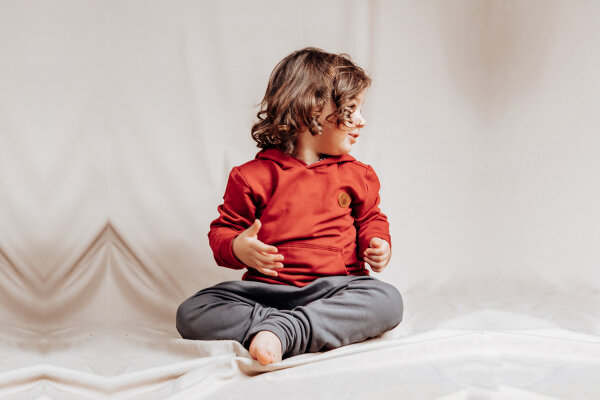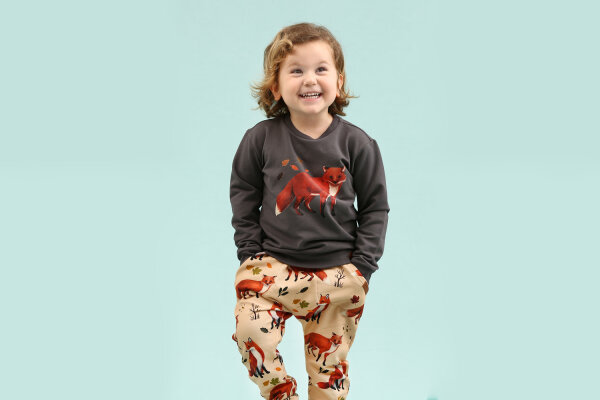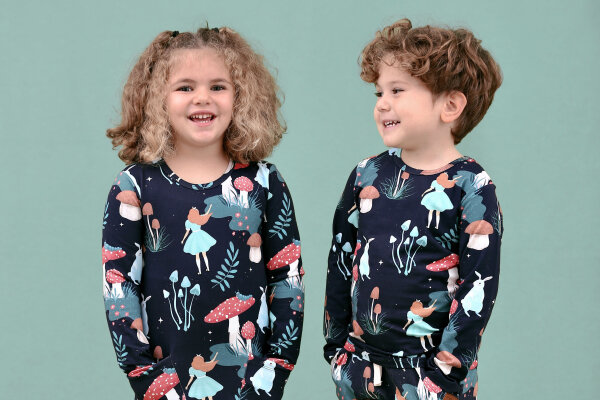Raising a child is a beautiful and unique feeling, but have we thought about the effects of this process on the environment? Babies need so many things and most of them are disposable. Moreover, since they grow rapidly, most of the stuff we buy for them last a few months. This increases our impact on the environment.
Being a sustainable parent is more important than ever, especially with the threat of climate change hanging over our heads. Fortunately, there are many small changes we can make to our daily lives to help reduce our impact on the planet as a parent. In this blog post, we’ll share 8 ways you can be a more sustainable parent. From composting your food scraps to choosing sustainable toys, these tips will help you make a difference.
Support sustainable baby clothing brands to be a sustainable parent:
One of the first steps you can take to be a sustainable parent can be to support sustainable clothing brands. Choosing to buy your baby's clothes from sustainable children's clothing brands such as Walkiddy will be the right decision for both the environment and your baby's health. Because sustainable processes are followed in GOTS-certified products made from organic cotton, from the growing process of the raw material to the distribution of the product. When growing organic cotton, no harmful fertilizers or pesticides are used, and much less water is wasted growing it than conventional cotton. In addition, since these products are non-toxic, they also protect your baby's health.
Plus, sustainable brands often carry out environmentally beneficial social responsibility projects. In other words, supporting these brands also means supporting social responsibility projects that are beneficial to nature and animals. For example; We, as Walkiddy, donated the majority of the income of the products sold within the scope of our polar bears' project to an organization that works to protect them, and we continue to conduct these kinds of projects periodically.
Go reusable to be a sustainable parent:
Unfortunately, many needs of babies are met with disposable products. A baby uses an average of 5,000 to 6,000 disposable diapers before potty training [1]. This means much more waste in landfill. Also, there is a similar issue with wet wipes. Wet wipes, which are the savior of families, from changing diapers to cleaning hands and mouths, unfortunately, cause great harm to nature. However, thanks to reusable diapers, it is possible to prevent this waste. Moreover, reusable wipes contain almost no chemicals and can be washed in the washing machine.
Make your own baby food to be a sustainable parent:
Making your own baby food is a great way to control the quality and flavor of the food that your child eats. It's also cheaper than buying commercial baby food, and you can customize the texture and flavor to meet your child's specific needs. In addition, making your own baby food can be more sustainable because you're using ingredients that you already have in your pantry or kitchen. To make baby food, you'll need a few basic ingredients: fresh fruits and vegetables, unsalted proteins, and whole grains. There are plenty of recipes online that walk you through step-by-step instructions for making different types of baby foods. Once you've got your base recipe nailed down, feel free to experiment with different variations by adding your own twist to it. This will help ensure that your child's meals remain interesting and new over time.
Eco wash to be a sustainable parent:
It's normal to start using the washing machine more often once you have a child. Of course, this means an increase in water and energy wastage. However, you can take some measures to reduce the environmental impact of this situation. You can run the washing machine with a full load. You can lower the temperature and use chemical-free and refillable detergent. All this will make the washing process more environmentally friendly.
Buy eco-friendly baby products to be a sustainable parent:
You can choose your child's personal care products from environmentally friendly brands. It would be important to prefer organic, natural products that don't contain harsh chemicals in your child's frequently used products such as shampoo, soap, moisturizer, and toothpaste. Thus, you protect your child's health and reduce your impact on the environment.
Choose sustainable toys to be a sustainable parent:
Most children's toys are made of materials that contain harmful chemicals, such as plastic. Preferring unpainted toys made of natural materials such as wood and organic cotton for your children will be an environmentally friendly step. In addition, these sustainable toys made of safe materials are the right choice for your child's health. When you research, you will realize that there are actually some sustainable children's toy brands on the market, such as Chimpy Toys, that offer many different educational and fun toys from their online store.
Compost your food scraps to be a sustainable parent:
Composting is a great way to reduce your food waste and be more sustainable as a parent. By setting up a compost bin in your backyard, you can turn your food scraps into nutrient-rich soil for your plants. This process is called 'composting'. Composting is an easy way to help reduce the amount of waste that you produce and it's good for the environment. Not only does composting create fertile soil, but it also helps to prevent harmful bacteria from growing in landfill sites.
Educate your kids about sustainability to be a sustainable parent:
Raising environmentally friendly children is perhaps the most important step in being a sustainable parent. First of all, you should lead your children by example with your actions. You can also tell them why sustainability is important and encourage them to be environmentally friendly in their daily lives. Of course, environmentally friendly cartoons, books, and documentaries will also be a tool for them to gain sustainable habits faster.
We hope that these tips have inspired you to make more sustainable choices in your daily life. Remember, every little bit counts! By making small changes in our daily lives, we can collectively make a big difference for the planet.



